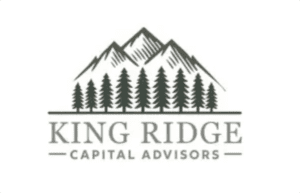What is the cash value of a $10000 life insurance policy?
What is the cash value of a $10000 life insurance policy?
It’s usually a payout of the full coverage amount defined in the policy (a $10,000 policy pays a $10,000 death benefit). Face Value: The face value of the policy is simply the coverage amount the policy is worth. So, the face value of a $10,000 policy is $10,000. This is usually the same amount as the death benefit.
Is the cash value the same as surrender?
Key Takeaways In most cases, the difference between your policy’s cash value and surrender value are the charges associated with early termination. After a certain period, the surrender costs will no longer be in effect, and your cash value and surrender value will be the same.
What happens to cash value in whole life policy at death?
Whole life insurance is a type of permanent life insurance. When you pay your premium, part of the money goes toward the death benefit. The rest of the money goes into a savings account, making up your policy’s cash value. This cash value grows over time, and you may be able to access this amount during your lifetime. Nov 4, 2021
How long does it take to build cash value on life insurance?
A portion of your premium goes to fund the death benefit. Another portion goes to fund the cash value of your policy. In most cases, the cash value doesn’t begin to accrue until 2-5 years have passed.
Can you withdraw cash value from life insurance policy?
You might be allowed to withdraw money from a life insurance policy with cash value on a tax-free basis. However, if the sum you take out surpasses the amount of money you’ve built up as the cash value under your policy, you’ll be required to pay income taxes on that money. Dec 10, 2020
How do I cash in an old life insurance policy?
There are three main ways to get cash out of your policy. You can borrow against your cash account typically with a low-interest life insurance loan, withdraw the cash (either as a lump sum or in regular payments), or you can surrender your policy.
How do you calculate actual cash value?
Actual cash value is computed by subtracting depreciation from replacement cost while depreciation is figured by establishing an expected lifetime of an item and determining what percentage of that life remains. This percentage, multiplied by the replacement cost, provides the actual cash value.
Is there a such thing as a $10000 life insurance policy?
First of all, if you are looking for a $10,000 quote, you will only get one type of policy: Whole Life Insurance. You may think you can get a $10,000 term policy, but that won’t be easy in reality. Most companies do not offer term policies for $10,000. Jan 27, 2022
What is the catch with whole life insurance?
Whole Life vs. Term Life Whole Life Insurance Term Life Insurance Has a cash value Does not have a cash value You can withdraw cash value as a loan No option to borrow against the policy More expensive premiums Lower premiums when you’re young but they increase as you age 4 more rows
Can I get life insurance at 62?
There are a few different types of life insurance coverage available for 62-year-olds. The two best options for seniors are term life and guaranteed universal life. Each of these two options can work well for seniors, but you should select the one that is best for your personal needs. Sep 18, 2020
What happens when a life insurance policy is surrendered for its cash value?
What happens when a policy is surrendered for cash value? When a policy is surrendered, you’ll lose coverage and no longer be responsible for paying insurance premiums. If your policy has cash value, you’ll get this money after surrender fees have been taken into account.
What does no cash value mean on life insurance?
Term life insurance policies have no cash surrender value. This means that if you decide to give up your coverage to the insurer, you won’t receive anything in return. Sep 15, 2021
What is an index universal life insurance?
Indexed universal life insurance is a type of permanent life insurance, which means it has a cash value component in addition to a death benefit. The money in your cash value account can earn interest based on a stock market index chosen by your insurer, such as the S&P 500 or the Nasdaq Composite.
What’s wrong with indexed universal life?
IUL insurance carries greater risk than standard universal life insurance, but less than variable life insurance policies (which do actually invest in stocks and bonds). “The additional client risk is due to interest rate crediting fluctuations,” says Niefeld. Also, the premiums could rise.
Is IUL good investment?
Is IUL insurance a good investment? An IUL is only a good investment if the stock market tanks and your cash value grows faster than the market as a whole. When the stock market is flourishing, an IUL is likely to be a disappointment.




